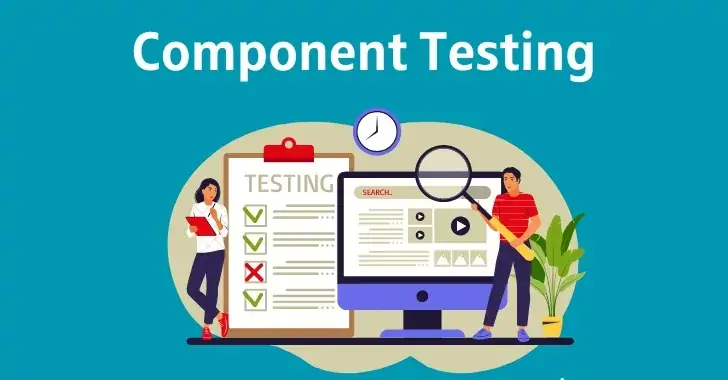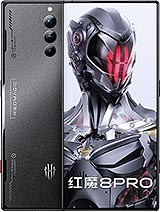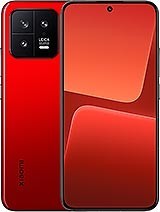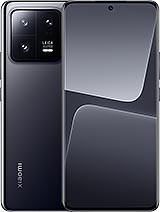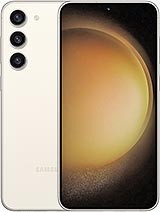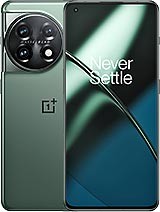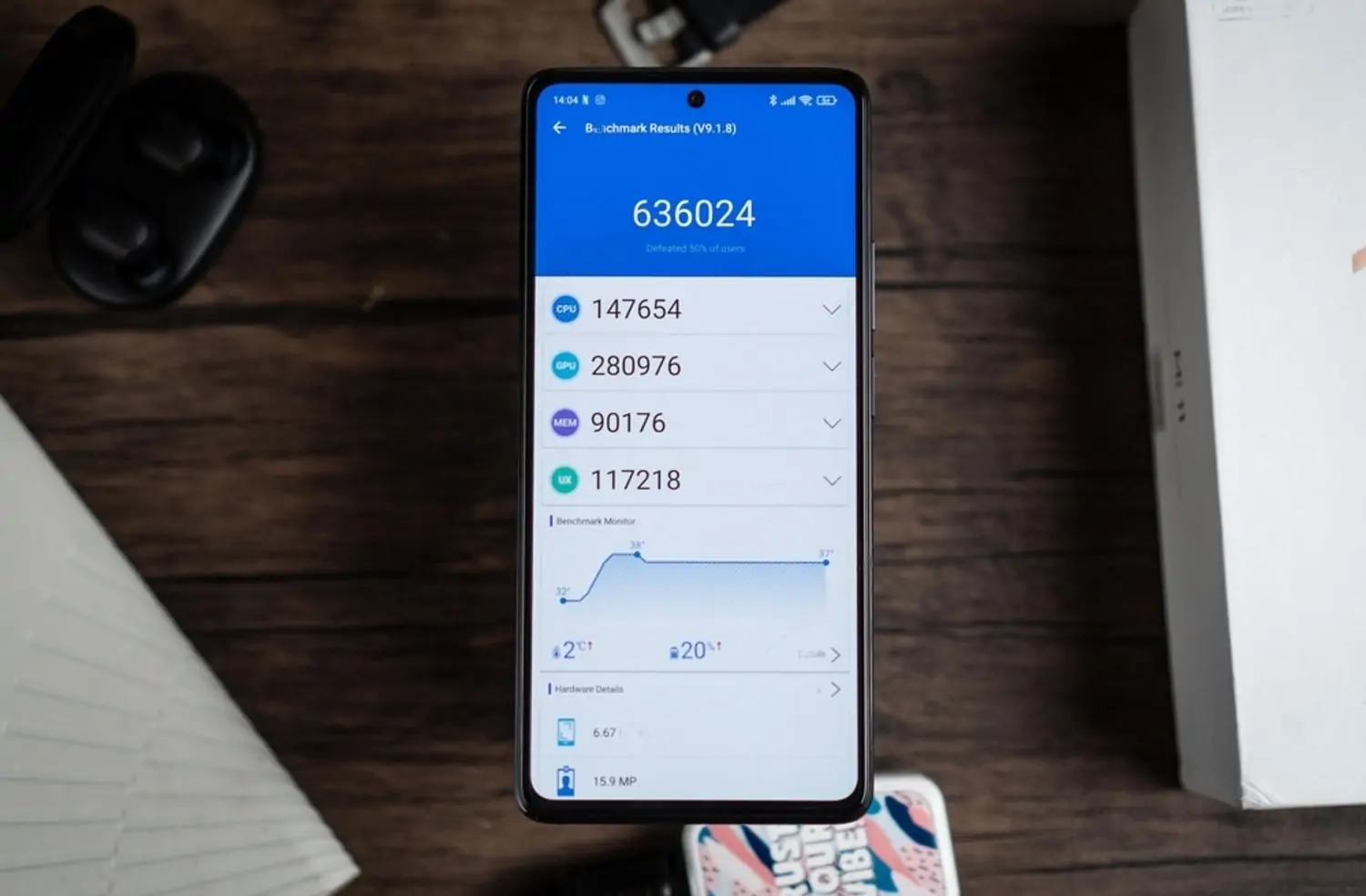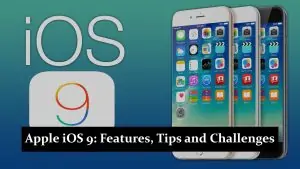In the world of smartphones, performance is a key factor that many users consider before making a purchase. One of the most recognized ways to measure a phone’s performance is through the AnTuTu benchmark score. A score of 1 million or more on AnTuTu is indicative of top-tier performance, ensuring that the device can handle the most demanding tasks with ease. Let’s dive into some of the best phones that have achieved this impressive score.
What is the Antutu Benchmark Score?
Antutu Benchmark is a widely used tool for evaluating the performance of mobile devices, such as smartphones and tablets. It assesses various components, including CPU, GPU, memory, and user experience, to provide a comprehensive performance score. A higher Antutu score indicates better overall performance, making it useful for comparing different devices. However, while the score offers a numerical representation of a device’s capabilities, real-world usage might differ due to factors like software optimization and battery life. It’s always recommended to consider multiple sources and real-world reviews alongside benchmark scores when assessing a device’s performance.
Why AnTuTu Scores Matter
In the realm of smartphones, performance metrics are crucial. They provide potential buyers with an objective measure of a device’s capabilities. Among these metrics, AnTuTu Benchmark scores have emerged as one of the most recognized and trusted indicators of a phone’s overall performance. But why do these scores matter so much? Let’s delve deeper.
Understanding the Components Tested
1. CPU (Central Processing Unit):
-
- The CPU is often termed the “brain” of the device. It handles most of the phone’s operations and processes.
- AnTuTu evaluates the CPU’s performance in both single-core and multi-core scenarios, ensuring a comprehensive assessment.
2. GPU (Graphics Processing Unit):
-
- The GPU is responsible for rendering graphics, making it crucial for activities like gaming, video playback, and using graphics-intensive apps.
- AnTuTu tests the GPU’s capabilities in rendering complex visuals, ensuring smooth graphics and transitions.
3. Memory:
-
- This component is about speed and efficiency. It determines how quickly apps load and how many apps can run simultaneously without lag.
- AnTuTu assesses both RAM (Random Access Memory) and ROM (Read-Only Memory) speeds, ensuring swift app launches and efficient multitasking.
4. UX (User Experience):
-
- Beyond just hardware, the overall user experience is vital. It encompasses the device’s software optimization, user interface fluidity, and general ease of use.
- AnTuTu evaluates how the hardware and software work in tandem, ensuring a seamless and intuitive user experience.
The Correlation Between High AnTuTu Scores and Real-World Performance
A high AnTuTu score is not just a number; it’s an indicator of a device’s holistic performance. Devices that score higher on AnTuTu generally:
- Offer Faster Performance: They can handle multiple tasks simultaneously without slowing down, ensuring that users don’t experience lag or stutters.
- Provide Enhanced Gaming: High scores often translate to better gaming experiences, with smoother frame rates and quicker load times.
- Ensure Efficient Multitasking: Switching between apps is seamless, and there’s no need to frequently reload apps due to efficient memory management.
- Deliver a Fluid User Experience: The combination of optimized software and powerful hardware ensures that interactions with the device are smooth and intuitive.
In essence, while AnTuTu scores provide a quantitative measure, they are closely tied to the qualitative real-world experience a user can expect from their device. It’s a bridge between technical specifications and tangible, everyday performance.
List of Phones with 1M+ AnTuTu Score
Here, we present a curated list of the best phones with a 1 Million plus AnTuTu score. These devices not only stand out in benchmark tests but also promise a seamless real-world experience, be it multitasking, gaming, or any resource-intensive task. Dive in to explore the top contenders that have set unparalleled standards in the mobile industry.
Zte Nubia Red Magic 8 Pro
Rs.129,999/$493
ZTE Nubia Red Magic 8 Pro AnTuTu Score: 1,630,559
Features:
- 6.8-inch AMOLED display with 144Hz refresh rate
- Snapdragon 8 Gen 2 chipset
- 16GB RAM and 512GB internal storage
- Triple rear camera setup with 108MP primary sensor
- 5000mAh battery with 65W fast charging
User Experience:
Users have praised the Red Magic 8 Pro+ for its gaming-centric features, including its shoulder triggers and advanced cooling system. The high refresh rate display offers a smooth experience, making it ideal for both gaming and daily tasks.
Asus Rog Phone 7
Rs.184,000/$641
ROG 7 AnTuTu Score: 1,607,911
Features:
-
- 6.7-inch AMOLED display with 120Hz refresh rate
- Custom gaming-centric UI
- Dual front-facing speakers
- AirTriggers for enhanced gaming
- 6000mAh battery with 65W fast charging
User Experience:
The ROG 7 is a favorite among gamers due to its performance and gaming-specific features. The AirTriggers and front-facing speakers enhance the gaming experience, while the large battery ensures extended play sessions.
Xiaomi 13
Rs.183,999/$662
Xiaomi 13 AnTuTu Score: 1,554,625
Features:
- 6.5-inch Super AMOLED display with 120Hz refresh rate
- Snapdragon 8 Gen 2 chipset
- 12GB RAM and 256GB internal storage
- Quad-camera setup with 108MP primary sensor
- 4800mAh battery with 55W fast charging
User Experience:
The Xiaomi 13 offers a balanced experience, with users praising its camera capabilities and smooth performance. The MIUI software provides various customization options, making it a favorite among tech enthusiasts.
Xiaomi 13 Pro
Rs.214,999/$773
Xiaomi 13 Pro AnTuTu Score: 1,540,767
Features:
- 6.7-inch Super AMOLED display with 120Hz refresh rate and HDR10+ support.
- Snapdragon 8 Gen 2 chipset for top-tier performance.
- 12GB RAM and up to 512GB UFS 3.1 internal storage.
- Quad-camera setup with a 108MP primary sensor, ultra-wide lens, telephoto lens with 5x optical zoom, and a macro lens.
- 5000mAh battery with 120W fast charging and 50W wireless charging.
- MIUI 13 with enhanced privacy features and a plethora of customization options.
- Stereo speakers with Hi-Res audio support.
- IP68 water and dust resistance.
User Experience:
The Xiaomi 13 Pro is Xiaomi’s flagship offering, designed to compete with the best in the market. It offers a blend of performance, camera capabilities, and a stellar display. The fast charging ensures the phone is ready to go in a short time, and MIUI 13 brings a host of features that enhance the overall user experience.
Samsung Galaxy S23 Plus
Rs.319,000/$999
Galaxy S23+ AnTuTu Score: 1,528,814
Features:
- 6.8-inch Dynamic AMOLED 2X display with 120Hz refresh rate
- Snapdragon 8 Gen 2 chipset
- 8GB RAM and 256GB internal storage
- Triple rear camera setup with 100x Space Zoom
- Under-display camera technology
User Experience:
The Galaxy S23+ is known for its premium build quality and camera capabilities. Users appreciate the under-display camera technology, which offers an uninterrupted display experience. The phone’s performance is top-notch, suitable for multitasking and gaming.
Samsung Galaxy S23 Ultra
Rs.559,999/$968
Galaxy S23 Ultra AnTuTu Score: 1,524,413
Features:
- 6.9-inch Dynamic AMOLED 2X display with 120Hz refresh rate
- Snapdragon 8 Gen 2 chipset
- 12GB RAM and 512GB internal storage
- Quad-camera setup with 108MP primary sensor and 100x Space Zoom
- S-Pen support and under-display camera technology
User Experience:
The Galaxy S23 Ultra is Samsung’s flagship offering, boasting top-tier specs and a versatile camera system. The addition of S-Pen support enhances productivity, and the phone’s display is among the best in the market.
Xiaomi Redmi K60 Ultra
Rs.124,999/$437.05
Redmi K60 Ultra AnTuTu Score: 1,478,388
Features:
- 6.7-inch AMOLED display with 120Hz refresh rate
- MediaTek 9200+ chipset
- 12GB RAM and 256GB internal storage
- Triple-camera setup with 108MP primary sensor
- 5000mAh battery with 67W fast charging
User Experience:
The Redmi K60 Ultra offers flagship-level performance at a competitive price. Users appreciate its camera capabilities and the fast charging feature, ensuring minimal downtime.
Samsung Galaxy S23
Rs.400,000/$799
Samsung Galaxy S23 AnTuTu Score: 1,478,024
Features:
- 6.5-inch Dynamic AMOLED 2X display with 120Hz refresh rate
- Snapdragon 8 Gen 2 chipset
- Triple-camera setup with 3x optical zoom
- In-display fingerprint scanner
- Wireless and reverse wireless charging
User Experience:
The Galaxy S23 is a well-rounded device, offering a blend of performance and features. It’s ideal for users who want flagship features without the Ultra’s price tag.
Oneplus 11
Rs.183,396/$525
OnePlus 11 AnTuTu Score: 1,445,346
Features:
- 6.7-inch Fluid AMOLED display with 120Hz refresh rate
- Snapdragon 8 Gen 2 chipset
- 16GB RAM and 256GB internal storage
- Hasselblad partnership for enhanced camera capabilities
- 65W fast charging and 50W wireless charging
User Experience:
OnePlus 11 continues the brand’s legacy of offering a fast and smooth experience. The partnership with Hasselblad ensures top-notch camera performance, and the phone’s software experience is among the best.
Lenovo Legion Y70
Rs.84,999/$299.49
Legion Y70 AnTuTu Score: 1,342,785
Features:
- 6.8-inch AMOLED display with 144Hz refresh rate
- Snapdragon 8 Gen 1 chipset
- 12GB RAM and 256GB internal storage
- Dual front-facing speakers and side-mounted charging port for gaming
- Advanced cooling system
User Experience:
The Legion Y70 is a gaming-centric phone, offering features tailored for gamers. The high refresh rate display and front-facing speakers enhance the gaming experience.
Apple Iphone 15 Pro Max
Rs.499,000/$1199
iPhone 15 Pro Max AnTuTu Score: 1,320,500
Features:
- 6.7-inch Super Retina XDR display
- A16 Bionic chip
- Triple-camera system with ProRAW and ProRes video recording
- Ceramic Shield front cover
- MagSafe technology for easy attachment of accessories
User Experience:
The iPhone 15 Pro Max continues Apple’s legacy of providing a seamless and premium experience. Users love the camera capabilities, especially ProRAW for photography and ProRes for video. The iOS ecosystem and performance remain unmatched, making it a top choice for many.
Huawei Mate 60 Pro
Rs.289,999/$958.79
Huawei Mate 60 Pro AnTuTu Score: 1,305,412
Features:
- 6.6-inch OLED display with 120Hz refresh rate
- Kirin 1000 chipset
- Penta-camera setup co-engineered with Leica
- 66W fast charging and 50W wireless charging
- HarmonyOS with AppGallery
User Experience:
The Mate 60 Pro showcases Huawei’s strengths in camera technology and design. The phone’s software experience is unique, thanks to HarmonyOS.
Oppo Find X5 Pro
Rs.249,999/$868
Oppo Find X5 Pro AnTuTu Score: 1,299,999
Features:
- 6.7-inch AMOLED display with 120Hz refresh rate
- Snapdragon 8 Gen 2 chipset
- Triple-camera setup with 10x optical zoom
- 65W fast charging and 30W wireless charging
- ColorOS with numerous customization options
User Experience:
The Find X5 Pro is Oppo’s flagship offering, boasting a versatile camera system and a premium design. The software experience is feature-rich, with many customization options.
Vivo Nex 5
Rs.139,999/$494
Vivo Nex 5 AnTuTu Score: 1,290,888
Features:
- 6.6-inch AMOLED display with an under-display camera
- Snapdragon 8 Gen 2 chipset
- Dual battery system for faster charging
- 120W fast charging
- FunTouch OS with Jovi AI assistant
User Experience:
The Nex 5 stands out with its under-display camera, offering an uninterrupted display experience. The phone’s fast charging capability ensures minimal downtime.
Factors Contributing to High AnTuTu Scores
When evaluating a smartphone’s performance, AnTuTu Benchmark scores have become a go-to metric for many tech enthusiasts and potential buyers. A high score on this platform often indicates a device’s superior performance capabilities.
Smartphones boasting 1M+ AnTuTu scores are often seen as high-performance devices. This impressive score is not just a random number; it reflects several critical components working in harmony. First and foremost, the processor plays a pivotal role. A powerful CPU can handle complex tasks and multitasking with ease, contributing significantly to the overall AnTuTu score. But what exactly contributes to these high scores? Let’s explore the key factors.
1. Advanced Chipsets and Processors:
-
- Evolution of Technology: Over the years, chipsets have evolved from single-core to multi-core configurations, allowing for parallel processing and enhanced multitasking capabilities.
- Custom Architectures: Many leading smartphone manufacturers are now designing custom architectures tailored to optimize performance and energy efficiency.
- Integrated AI Capabilities: Modern chipsets come with integrated AI (Artificial Intelligence) capabilities, enhancing tasks like image recognition, voice processing, and augmented reality.
2. Efficient RAM and Storage Configurations:
-
- Higher RAM Capacities: More RAM allows for efficient multitasking. Modern smartphones often come with 8GB, 12GB, or even 16GB of RAM, ensuring apps remain in memory and don’t need frequent reloading.
- Faster Storage Technologies: The shift from eMMC storage to UFS (Universal Flash Storage) has led to faster read/write speeds, reducing app load times and ensuring swift data access.
- Optimized Memory Management: Advanced algorithms ensure that frequently used apps remain in memory while less-used apps are efficiently managed to free up space.
3. Software Optimizations and Updates:
-
- Tailored Software: Many manufacturers customize their software to work seamlessly with the hardware. This harmony between software and hardware can lead to significant performance boosts.
- Regular Updates: Frequent software updates not only bring new features but also optimizations that enhance performance, security, and battery life.
- Bloatware Reduction: Manufacturers are becoming increasingly aware of the negative impact of bloatware. Reducing unnecessary pre-installed apps can lead to a smoother user experience and better performance metrics.
While AnTuTu scores provide a snapshot of a device’s performance capabilities, it’s the synergy of advanced hardware and optimized software that truly drives these scores. As technology continues to evolve, we can expect even higher AnTuTu scores, reflecting the relentless pursuit of performance excellence in the smartphone industry.
Benefits of Owning 1M+ AnTuTu Score Smartphone
From gaming and entertainment to productivity and communication, mobile phones cater to our needs. But why should one consider owning a high-scoring smartphone, especially one with a top AnTuTu score? Let’s delve into the tangible benefits.
1. Enhanced Gaming Experience:
-
- Lag-Free Gameplay: 1M+ AnTuTu scoring smartphones, with their superior GPU performance, ensure that games run smoothly without hitches or lags. This is especially crucial for graphic-intensive games and online multiplayer battles where every millisecond counts.
- Richer Graphics: These devices can render high-quality graphics, bringing out intricate details, realistic shadows, and dynamic lighting, thus elevating the overall visual appeal of games.
- Longer Play Sessions: With optimized thermal management, high-scoring smartphones can handle extended gaming sessions without overheating, ensuring consistent performance throughout.
2. Smooth Multitasking Capabilities:
-
- Swift App Switching: With ample RAM and optimized memory management, transitioning between apps becomes a breeze. Whether you’re juggling between your email, browser, and video call, the experience remains seamless.
- No More Waiting: Phones with 1M+ AnTuTu score boast faster storage technologies, ensuring apps launch swiftly and files open almost instantaneously.
- Consistent Performance: Even with multiple apps running in the background, these smartphones maintain their performance, ensuring that the user experience remains unaffected.
3. Future-Proofing: Ready for Upcoming Apps and Updates:
-
- Stay Ahead of the Curve: As apps become more sophisticated and resource-intensive, having a high-scoring smartphone ensures that you’re prepared for the future, avoiding the need for frequent upgrades.
- Optimized for Updates: These smartphones are often the first to receive the latest software updates, bringing in new features, security patches, and performance improvements.
- AR & VR Ready: As augmented and virtual reality apps gain traction, owning a powerful smartphone ensures you can enjoy these immersive experiences without any hiccups.
In essence, investing in smartphones with more than one million AnTuTu benchmark scores is not just about boasting impressive numbers. It’s about ensuring a premium user experience, whether you’re a gamer, a power user, or someone who simply wants their device to keep up with the ever-evolving digital landscape.
How to Interpret AnTuTu Scores?
AnTuTu is one of the most popular benchmarking tools globally, providing a comprehensive performance assessment of smartphones. But what do these scores truly signify? Let’s break down the AnTuTu scores and understand their implications.
1. Score Breakdown: What Each Segment Means
-
- CPU Performance: This evaluates the smartphone’s processing power. A higher score here indicates faster data processing capabilities, crucial for tasks like app launches, data computations, and general system operations.
- GPU Performance: This segment assesses the device’s graphics processing unit. A superior score suggests better rendering of visuals, essential for gaming, video playback, and other graphic-intensive tasks.
- Memory (RAM) Performance: This score reflects the efficiency and speed of the device’s RAM. A higher score ensures smoother multitasking and faster app switching.
- UX (User Experience) Performance: This evaluates the overall user experience, considering factors like data processing, input/output speeds, and general user interface fluidity.
2. Why a Higher Score Might Not Always Mean a Better User Experience
-
- Real-World vs. Synthetic Benchmarks: AnTuTu provides a synthetic benchmark, meaning it runs a series of predefined tasks to evaluate performance. While useful, this doesn’t always translate directly to real-world usage, where variables like background processes, user habits, and specific app behaviors come into play.
- Software Optimizations: Some manufacturers might optimize their devices specifically for benchmarking tools, leading to inflated scores that don’t reflect actual performance.
- Thermal Throttling: A device might achieve high scores in short benchmark tests but could suffer from thermal throttling (performance reduction to manage heat) during prolonged, intensive tasks.
- User Preferences: A device with a stellar GPU score is excellent for gamers, but if you primarily use your phone for browsing and communication, GPU performance might not significantly impact your experience.
- External Factors: Network conditions, software updates, and even ambient temperature can influence device performance, making it essential to consider real-world reviews and feedback alongside benchmark scores.
While AnTuTu scores provide a valuable snapshot of a device’s potential performance, they are just one piece of the puzzle. It’s essential to interpret these scores in the context of your specific needs, preferences, and real-world usage scenarios to make an informed decision.
FAQs
What does a Phones with 1M+ AnTuTu Benchmark Score label signify for a smartphone?
A label of Phones with 1M+ AnTuTu Benchmark Score indicates that the smartphone has achieved a superior technical performance benchmark, reflecting its capabilities across CPU, GPU, Memory, and UX components.
How do 1Million+ AnTuTu Score Phones compare to those with lower scores?
1Million+ AnTuTu Score Phones are often seen as high-performance devices capable of handling intensive tasks, gaming, and multitasking more efficiently than phones with lower scores. They are typically equipped with advanced hardware and optimized software to achieve such high scores.
Are Phones with 1M+ AnTuTu Benchmark Score always the best choice for all users?
While Phones with 1M+ AnTuTu Benchmark Score showcase strong technical performance, the best choice for users also depends on other factors like software interface, build quality, camera capabilities, battery life, and individual needs.
What is AnTuTu Benchmark?
AnTuTu is a globally recognized benchmarking tool that evaluates the performance of smartphones across various parameters, including CPU, GPU, Memory, and UX.
How often should I check for updated AnTuTu scores?
AnTuTu scores can change with software updates, optimizations, or new versions of the benchmark tool. It's a good idea to check for updated scores when comparing recent smartphone models or before making a purchase.
Can manufacturers manipulate AnTuTu scores?
While some manufacturers have been accused of optimizing their devices specifically for benchmarking tools, leading to potentially inflated scores, AnTuTu continually updates its testing methods to provide accurate and unbiased results.
Is a higher AnTuTu score always better?
Not necessarily. While a higher score indicates better synthetic performance, real-world usage might differ based on various factors like software optimizations, user habits, and specific app behaviors.
Do all high-scoring phones offer a good user experience?
A high AnTuTu score suggests strong technical performance, but user experience also depends on factors like software interface, build quality, camera quality, battery life, and more.
Why do some older phones have higher scores than newer models?
Various factors, including software optimizations, chipset variations, or even AnTuTu's testing algorithm changes, can lead to score discrepancies. It's essential to consider the overall device package, not just the benchmark score.
Conclusion
AnTuTu benchmark scores serve as a valuable metric for gauging smartphone performance, especially for smartphones with a 1 million plus AnTuTu Score, offering insights into a device’s capabilities across various parameters. However, while these scores provide a foundational understanding, they shouldn’t be the sole determinant when choosing a smartphone. Real-world usage, user reviews, and individual needs play a crucial role in ensuring you select a device that truly aligns with your requirements. Remember, a phone is more than just its AnTuTu score; it’s an amalgamation of hardware, software, and the experience it delivers.


